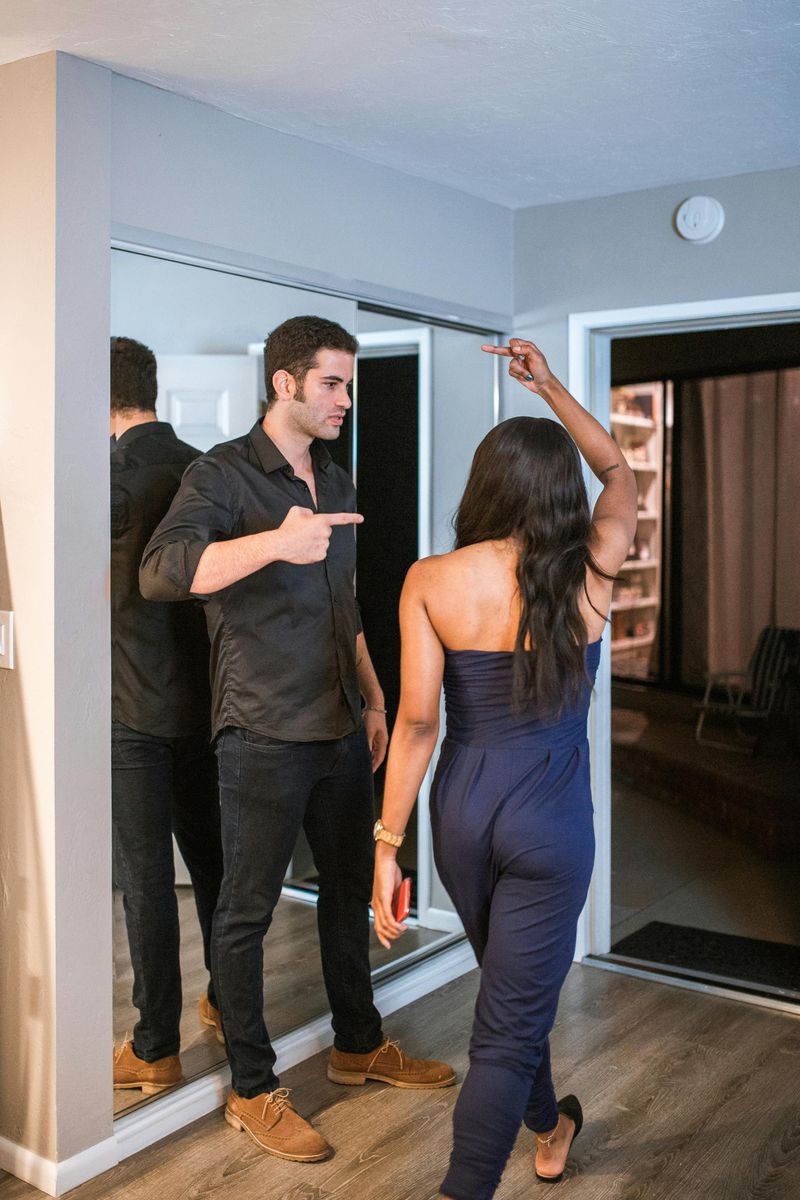10 Signs You’re in an Unhealthy Relationship

Relationships should bring joy, support, and growth into our lives. But sometimes, what starts as love can slowly turn into something harmful. Recognizing the warning signs early can help you make important decisions about your relationship future. These ten signs might indicate it’s time to reassess your partnership or seek help.
1. Constant Criticism Chips Away at Your Confidence

Your partner regularly points out your flaws, making you feel like you can’t do anything right. These critiques go beyond helpful suggestions and attack your character, appearance, or abilities.
Over time, this steady stream of negativity wears down your self-esteem. You might start believing these harsh judgments and question your worth.
Healthy relationships build you up rather than tear you down. Partners should celebrate your strengths while accepting imperfections with kindness.
2. Control Masquerades as Care

At first, their protectiveness seemed sweet. Now they monitor your location, check your phone, or dictate who you can see. They might justify this behavior as concern for your safety or wellbeing.
Real care respects boundaries and trusts you to make your own choices. Control is about power, not protection.
When someone truly loves you, they support your independence rather than restricting it. Your freedom to make decisions shouldn’t disappear when you enter a relationship.
3. Isolation Cuts You Off From Support

Friends and family see you less often. Your partner makes spending time with others difficult through guilt trips, arguments, or creating conflicts with people you care about.
This separation isn’t random – it’s a common tactic that makes you more dependent on the relationship. Without outside perspectives, unhealthy dynamics become your new normal.
Strong relationships encourage outside connections rather than limiting them. Your partner should welcome the important people in your life, not drive them away.
4. Walking on Eggshells Around Their Moods

You’ve become an expert at reading their expressions and adjusting your behavior to avoid setting them off. Certain topics are off-limits because they trigger anger or silent treatment.
This constant state of alertness is exhausting. You shouldn’t need special skills just to get through a regular day with your partner.
Relationships should feel safe enough for honest communication. If you’re constantly managing someone else’s emotions at the expense of expressing yourself, something’s wrong.
5. Disrespect Shows Up in Public and Private

Name-calling, harsh jokes at your expense, or dismissive comments have become normal. Maybe they interrupt you, talk over you, or make important decisions without your input.
Respect forms the foundation of healthy relationships. Without it, trust and safety crumble.
Look at how they treat you when others are watching versus when you’re alone. Consistent respect matters in all settings, not just when they have an audience to impress.
6. Jealousy Goes Beyond Normal Concern

Feeling a bit jealous once in a while is natural. But if your partner demands constant reassurance, accuses you unfairly, or gets upset over nothing, it’s cause for concern.
Extreme jealousy reveals insecurity and trust issues. Your partner’s fears shouldn’t control your behavior or limit normal friendships.
Trust means believing in someone’s commitment without needing constant proof. If simple things like talking to coworkers or having friends triggers their suspicion, the relationship lacks a healthy foundation.
7. Your Achievements Trigger Their Insecurity

In a healthy relationship, your wins are shared wins. But when your success makes your partner uneasy or sparks competition, that’s a sign something’s off.
They might downplay your accomplishments, change the subject, or find ways to one-up you. Sometimes they’ll even create problems during your important moments to shift attention back to themselves.
Partners should lift each other up, not feel threatened by each other’s growth. Your wins deserve genuine celebration, not passive-aggressive responses or attempts to diminish your spotlight.
8. Apologies Without Changed Behavior

The cycle repeats: hurtful behavior, dramatic apology, brief improvement, then back to square one. Their words sound sincere in the moment, but their actions tell a different story.
Real apologies lead to genuine effort and changed behavior. Without this follow-through, “I’m sorry” becomes just another tool to manage your reactions.
Pay attention to patterns over time rather than promises in emotional moments. Someone who truly regrets hurting you will work consistently to avoid repeating the same mistakes.
9. Your Needs Always Come Second

It’s normal to give a little in relationships—but not if it’s always you. When your preferences are routinely overlooked, that’s a problem.
When you express needs, they might dismiss them as unimportant or make you feel selfish for having them. This imbalance leaves you feeling unseen and undervalued.
Healthy partnerships involve give and take from both sides. Both people deserve care and consideration, not just the louder or more demanding partner.
10. Your Gut Feeling Says Something’s Wrong

Despite explanations or justifications, something deep inside feels off about the relationship. You might struggle to name exactly what’s wrong, but the feeling persists.
This inner wisdom deserves your attention. Our bodies often recognize danger before our minds can fully process it.
Don’t ignore persistent discomfort or anxiety about your relationship. These feelings aren’t weakness or overthinking – they’re important signals worth exploring, possibly with help from a trusted friend or professional.

Comments
Loading…